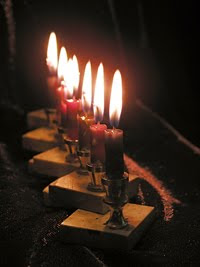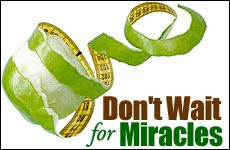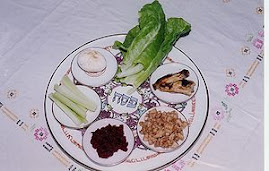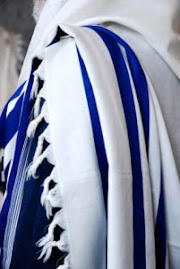CLEAN FOR PESACH AND ENJOY THE SEDER! by Rabbi Chaim Pinchas Scheinberg
Edited By Rabbi Moshe Finkelstein Kiryat Mattersdorf, Jerusalem
Pesach 5765
Print Version
These notes are based on the responsa of Moreinu veRabbeinu HaGaon HaRav Chaim Pinchas Scheinberg, shlita, rosh yeshivas Torah Ore, to questions posed by women attending his regular talks. They have been compiled by a group of his students. The notes also include Hebrew sources and footnotes, which are not reproduced here.
PREFACE
In former times, wealthy people who had large houses also had many servants who did their bidding, while poor people, who could not afford servants, lived in small homes with one or two rooms. Understandably, the pre-Passover chores of the rich were performed by the servants, while the poor, who had only their one or two rooms to clean, a few pieces of furniture, a minimum of utensils, and some clothing, took care of their needs themselves.
In those days, cleaning was hard. Tables were made of raw wood, requiring them to be scrubbed or even to be shaven to ensure that no pieces of food were hidden in the cracks. Earthen or wooden floors also needed to be thoroughly cleaned and scrubbed.
Today, we seem to be caught in a trap. The average modern home is larger than formerly. Furniture, utensils and clothing are much more plentiful. The average home today can compare with the more affluent homes of previous generations. However, we do not have the servants that they had, so that today, all the chores fall on the woman of the home. At the same time she still feels obligated to clean and scrub as they did formerly, even though she has laminated furniture and tiled floors, making this type of cleaning unnecessary.
As a result of this, the pressure of pre-Pesach cleaning has reached unnecessary and overwhelming levels. The housewife often becomes overly nervous, unable to enjoy the holiday joy of Passover and unable to perform the mitzvos and obligations of the Seder night.
INTRODUCTION
Passover, like every other yom tov, must be enjoyed by every member of the family, including women. This is an obligation clearly defined in the Torah as explained by our Sages. We can understand a person dreading Tisha B’Av but Pesach is to be looked forward to and anticipated with joy. Every woman should be well rested, relaxed and alert at the Seder table so that she can fulfill all the Torah and Rabbinic obligations and follow the Haggadah with the rest of the family. Clearly, the performance of her pre- Passover duties must be balanced against her Passover obligations.
Pre-Passover cleaning is required to avoid the danger of transgressing any Torah or Rabbinic prohibition of having chometz in the house on Pesach. It is evident from the responsa of the Rosh Hayeshiva shlita that this need not be excessive.
It is not the intention here to abolish traditions which have been passed down by Klal Yisroel from generation to generation. Nevertheless, some practices adopted by women in the Passover cleaning today are not an actual continuation of the old traditions. For example, if a person does not sell his chometz, of course it is necessary to check his utensils and to wash off any chometz left on them, or to render the chometz inedible. But if the chometz is sold, then washing the pots, pans and dishes which are going to be locked away is not necessary.
One might be tempted to insist on doing the extra work anyway — to be machmir (stringent). However, in these stringencies lies the grave danger of causing many laxities and brushing aside many mitzvohs completely, including Torah and Rabbinic obligations which women are required to do on Passover and particularly during the Seder.
Many women like to do more “cleaning” than the bare minimum, to such an extent, that some even incorporate their general “spring cleaning” into their required pre-Passover chores. These extra exertions should not prevent them from fulfilling their obligations on Passover, and particularly on the Seder night.
GENERAL NOTES
A. All property and possessions must be cleaned and checked to make sure that they are free of all chometz, except in the following cases: B. If, during the year, chometz is not brought into a place, that place does not have to be cleaned out or checked for chometz. C. Any article which is not used on Pesach does not need to be checked for chometz, provided it is put away properly and the chometz in it is sold. D. Crumbs which have been rendered completely inedible [C.J. Weisberg explains: by coating with small amount of household cleaner] to the extent that they are not fit to be eaten by a dog are not considered chometz. E. The general obligation to check for and destroy crumbs does not apply if the crumbs are less than the size of an olive (kezayis) and are dirty or spoiled enough to prevent a person from eating them. F. The household cleaner (mentioned below) used must spoil the crumbs slightly to the extent that people would refrain from eating them. G. It is customary that any item to be kashered should not be used for 24 hours prior to kashering, in order that it should not be a ben- yomo.
PRACTICAL APPLICATIONS
1) CLOTHING CLOSETS: If there is some significant possibility that chometz went into them, they should be checked for fully edible crumbs of chometz, besides large pieces of chometz. If the probability that chometz entered these places is remote, a rav can be consulted to clarify the conditions under which they do not have to be checked. This includes chests, dressers, basements, and all other similar places (see General Note E).
2) FLOORS: We don’t have earthen floors with deep cracks in them. It is sufficient for tiled or covered floors to be swept and washed with a household floor cleaner. Cracks and spaces between tiles do not have to be checked if the cleaning solution reaches into them.
3) FOOD CABINETS: If the cabinet is not going to be used on Passover, then you just have to lock it or seal it in a manner that will remind you not to use it on Passover and sell it with the chometz (see General Notes C & E ). If the cabinet is going to be used on Pesach, take out all the food and wash it with a rag soaked in a household cleaner. Be sure the cleansing agent reaches into all the cracks and soaks into any crumbs that might be left there. The usual practice is to line the cabinets.
4) REFRIGERATOR: Take the food out, and wash it with a rag soaked in a household cleaner. The racks are usually covered. (It is advisable to leave holes for air circulation.)
5) KASHERING SINKS: Clean the sinks (see General Note G), and pour a kettle of boiling water into them and on their sides. Some people pour hot water mixed with bleach down the drain. The usual practice today is to use an insert, or line the sinks (e.g. aluminum foil, contact paper). If not difficult, this practice should be followed.
6) FAUCETS (TAPS): Cleaning, without any other kashering procedure, is sufficient.
7) MARBLE AND STAINLESS STEEL COUNTERS: If they were used for hot chometz they should first be cleaned well. They should either be completely covered so that nothing Pesach’dik touches them or (if it will not ruin the countertop) pour boiling hot water on them (see General Note G). Many people do both.
8 TABLETOPS: Wash them with a household cleaner. The usual practice is to cover the tables.
9) KASHERING RANGE/OVEN/STOVE-TOP: Wash the top and side surface areas with a rag soaked in a strong household cleaner. Clean the knobs well. Grates can be kashered by first cleaning them well (see General Note G), then put them back on the stove, and then lighting all the burners, raising them to their maximum heat, putting on a blech while the burners are on. This spreads the heat over the whole top and intensifies the heat on the grates. Let it burn for 5 – 10 minutes. [Be careful that the knobs don't melt.] After kashering, the usual practice today is to cover the stove-top with aluminum foil (being extremely careful not to block the air inlets around the burners and on the back of the stove, as this could create poisonous fumes in the room).
* OVEN: If you want to use the oven: (a) First clean the oven well with an oven cleaner (e.g. Easy-Off). Make sure that it reaches into all the cracks and around the screws. (After using the oven cleaner, there is no need for further cleaning). (see General Note G). Then heat the inside of the oven by turning the oven on to its highest temperature for about one hour. (b) If your oven has a turbo option (a fan which circulates the heat ), consult a rav about your particular type. (c) After kashering, if the oven door has a glass window, preferably cover the entire inside of the door with aluminum foil. (d) If a closed oven insert is available, this would be preferable. In this case, only washing and cleaning are necessary. (e) Do not use the chometz-dik oven racks for Pesach. If this is difficult, then one can kasher the racks with the same procedure as for the oven, placing them as close as possible to the heating element.
If the oven is not going to be used: None of the above is necessary. Just make certain that there is no edible chometz inside, tape it closed well and see below #10.
10) POTS, PANS, DISHES, & SILVERWARE (CUTLERY): Whatever is not going to be used for Pesach should either be locked up, or put away and sealed in a manner which will remind you not to use them on Pesach. If there is a possibility of actual chometz in them, the chometz should be sold (see General Note C.). If you do not sell chometz, then they should be either washed or soaked in a household cleaner; it is not necessary to scrub them. (Concerning kashering utensils for Pesach consult a rav.)
11) FOOD PROCESSOR/MIXER: A rav should be consulted.
12) DISH TOWELS: If one does not have a Pesach’dik set of dish towels, then one’s regular dish towels may be used if they are washed with a detergent and no food remains attached to them. (It is customary to have a set of Pesach’dik dish towels.)
13) PESACH TABLECLOTHS: These can be ironed with the same iron as is used during the rest of the year.
14) CLOTHES, BLANKETS, POCKETS, ETC.: If they have been washed in detergent or dry cleaned, then there is no need for them to be checked (see General Note E). Otherwise they need to be cleaned and checked thoroughly by brushing or shaking them out well. However, if there is a possibility of crumbs between the stitches or in a hidden crevice which cannot be shaken out, then they must be wiped with a rag which has been soaked in a detergent. Clothes which will not be worn on Pesach do not have to be checked, but they should be put away and the chometz in them sold (see General Notes C. and Sec. 10 on Pots and Pans).
15) SIDDURIM, BENCHERS, SEFORIM, BOOKS: If there is a chance that they contain chometz, then they should either be put away and sold with other chometz utensils (see General Notes C.), or cleaned and checked well.
16) TOYS: If there is edible chometz, then it should be either removed, or rendered inedible (see General Notes E). There is no need to scrub them.
17) TECHINA & OTHER KITNIYOS (legumes): May be used after the house has been cleaned for Pesach. They should not be cooked in utensils that will be used on Pesach, and certainly not on Pesach itself (according to the Ashkenaz minhag).
20) LAST MINUTE PREPARATIONS: For example, setting the table, etc., should be completed early enough in the day, so that you will be able to rest a little bit. Be ready to start the seder immediately after ma’ariv, to ensure that the children won’t fall asleep at the Seder.
21) ENJOY PESACH! Try to make the Pesach chores easy for yourself. Don’t do unnecessary hard work. Don’t do unnecessary cleaning. You can be like a Queen and you must enjoy your Pesach!
Reprinted from www.Orchos.org. All Rights Reserved. Revised Edition. Permission is given to reprint for non-sale purposes only.





























_(english).gif)












































